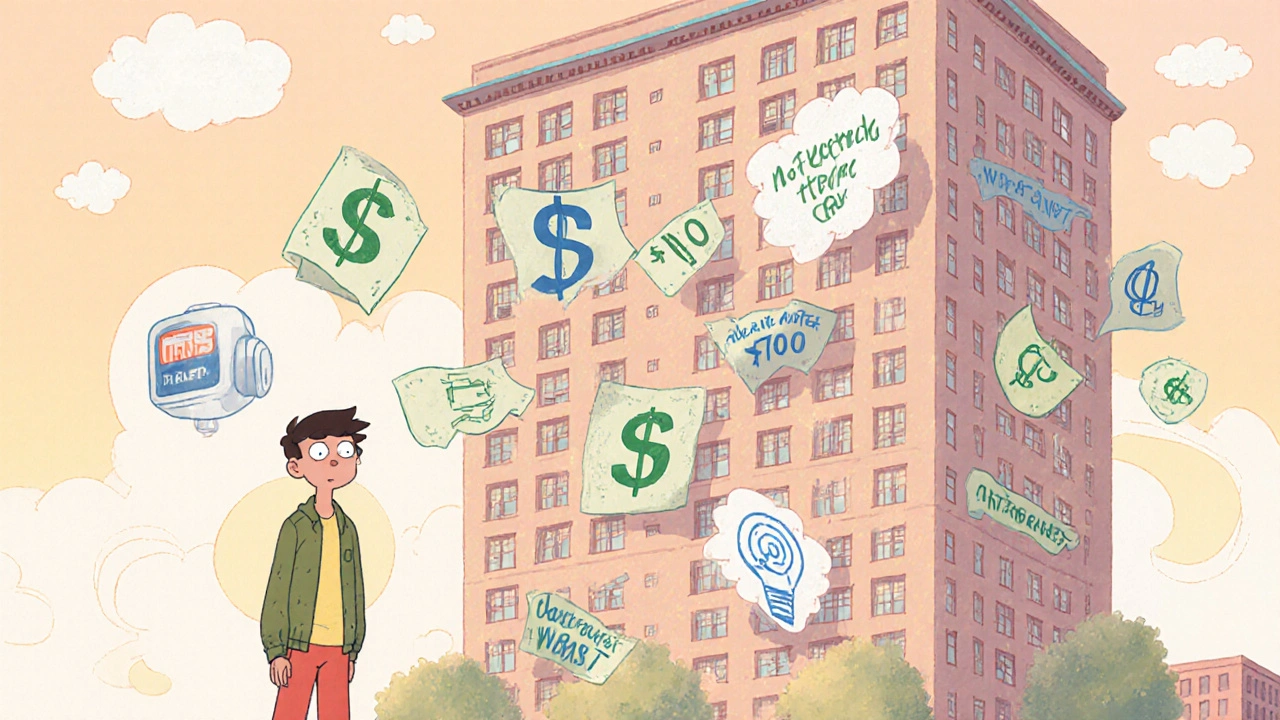Rent Costs: What You Really Pay and How It Affects Your Financial Strategy
When you think about rent costs, the monthly payment you make to live in a home you don’t own. Also known as housing expenses, it’s one of the biggest line items in most people’s budgets—and often the most underestimated. It’s not just the rent check. It’s the security deposit you tie up for months, the utilities that creep up in winter, the parking fees, the washer-dryer surcharges, the pet deposits, and the surprise repair bills your landlord passes on. These add up fast, and they directly eat into your ability to save, invest, or build an emergency fund.
That’s why emergency fund, a cash reserve set aside for unexpected expenses like job loss or medical bills matters so much when rent costs are high. If your rent takes up 50% of your take-home pay, you’re one missed paycheck away from trouble. Most financial advice says to save three to six months of living expenses—but if your rent is $2,000 a month, that’s $6,000 to $12,000 just to feel safe. And if you’re in a city where rent keeps rising, that number keeps climbing. Meanwhile, budgeting, the practice of tracking income and expenses to control spending and meet financial goals becomes less about cutting coffee and more about choosing between rent, groceries, and investing. People who track their rent costs closely are more likely to make smarter moves—like moving to a cheaper neighborhood, getting a roommate, or even buying a home when the numbers finally work.
And it’s not just about what you pay now. Rent costs influence your long-term financial planning, the process of setting goals and making decisions to achieve financial security over time. If you’re paying $1,800 a month in rent, that’s $21,600 a year gone. Over ten years? That’s over $200,000. If that money had gone into an index fund earning 7% annually, you’d have nearly $300,000. That’s the hidden cost of renting: opportunity. It doesn’t mean renting is bad—it’s often the right choice. But you need to know the real price tag, and plan around it. Some people use rent savings to fund side hustles. Others use it to pay down debt faster. A few even use it to build a portfolio of rental properties themselves.
Below, you’ll find real posts from people who’ve cracked the code on rent costs—how they reduced them, how they built safety nets around them, and how they turned housing from a drain into a strategic part of their financial plan. No fluff. Just what works.



